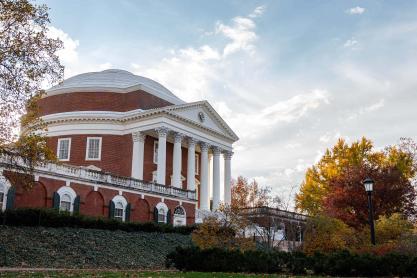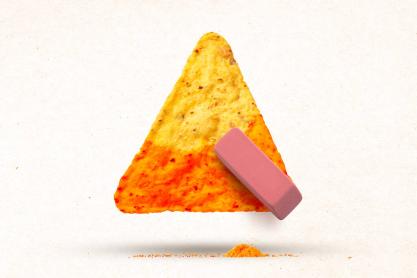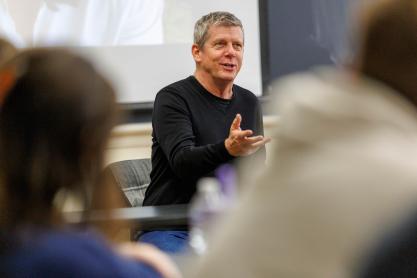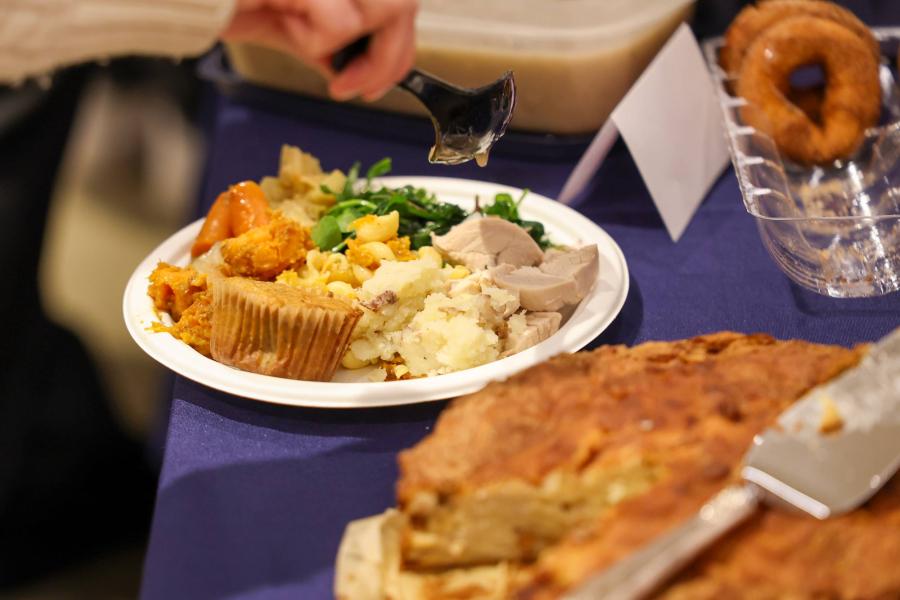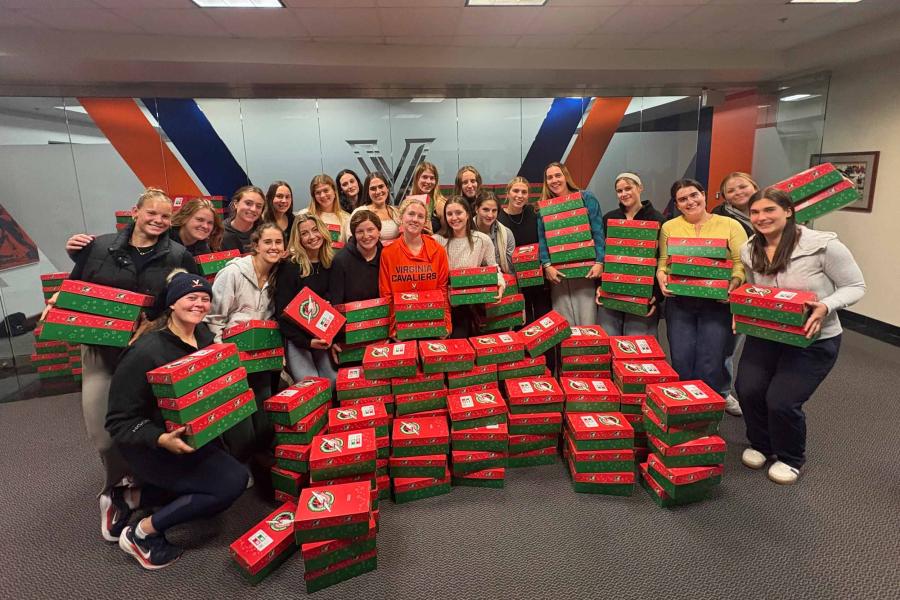Hannah Zook, a third-year University of Virginia student from Sterling, was 4 when she tried adaptive climbing for the first time at a recreation center. Now, she’s scaling walls the world over.
“I didn’t know many other disabled people before I started climbing, and para climbing competitions have given me the opportunity to meet other people with disabilities and form a community of people with shared interests,” said Zook, who has cerebral palsy.
Zook has been a competing member of the USA Para Climbing National Team for four years and has competed in 14 World Cup and world championship events.

Zook is determined to continue climbing after graduating and hopes to qualify for the 2028 Paralympics. (Photo by Lathan Goumas, University Communications)
Adaptive or para climbing is a form of competitive rock climbing for athletes with disabilities. Para climbing has gained significant traction in recent years, and earlier this summer was announced to debut in the 2028 Los Angeles Paralympic Games.
Para climbing is divided into three categories: visually impaired (B), limb deficiency (AL/AU), and limited power or mobility (RP). The categories are numbered from one to three to indicate the severity of the disability, one being the most severe and three being the least. Zook competes in the RP1 category.
Majoring in biomedical engineering and minoring in engineering business, Zook has placed in the top three in her category at the national championships every year since 2022.
“This year, I’ve won a gold medal and bronze medal at two World Cups, and won bronze at the world championships,” Zook said earlier this fall. In October, she added a silver medal at the International Federation of Sport Climbing World Cup in Laval, France.
Zook’s day-to-day training is often solo. At home, she works with a local coach and remotely with USA Para Climbing coaches. At UVA, she mostly splits her time between bouldering at the Slaughter Recreation Center Climbing Center and Rocky Top Climbing in Charlottesville.



